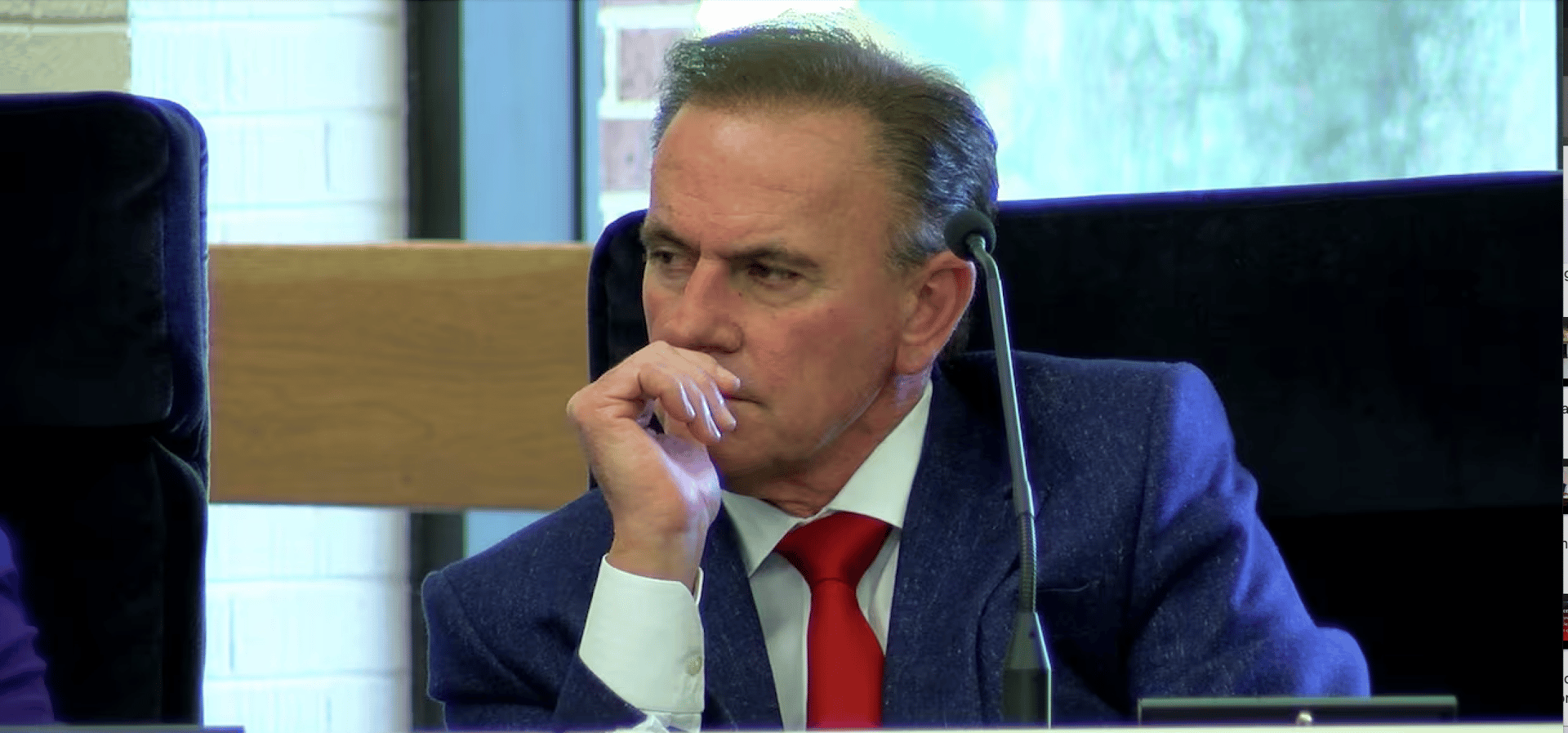
Lee Mallett Response to the "Zurik: State official’s companies sanctioned in two separate investigations" article.
About Lee Mallett's Case: Setting the Record Straight
There has been a lot of misinformation floating around about a legal matter involving my business and the Louisiana Workers’ Compensation Corporation (LWCC). Today, I want to set the record straight with the facts and expose the tactics used against small businesses like mine.
The Truth About My Business and Insurance
From 2008 to April 2018, my company, Progressive Building, carried private insurance and went through ten years of audits without any major issues. We operated like any responsible business, ensuring our employees were covered and following all necessary procedures. However, in 2018, we had two workplace accidents, and as a result, our insurance carrier canceled our policy. Our insurance agent secured a policy with LWCC to continue coverage, but soon after, LWCC canceled the policy upon discovering I had an ownership stake in the company.
When this happened, I filed an appeal with the insurance commission, believing that the cancellation was unfair. Unfortunately, the insurance commission sided with LWCC, despite there being no real investigation into our situation—just audits. What’s important to understand is that our previous private insurance company had already conducted audits and found no issues. Yet, LWCC insisted on their own audit and used it to justify their claims.
The Audit vs. The Reality
Despite what some people are saying, there was never a formal investigation into my business—only audits. During LWCC’s audit, they claimed that three employees out of 46 had possibly overstated their mileage reimbursements and charitable donations to a reentry program for incarcerated individuals. These were minor clerical discrepancies, and as soon as we were made aware of them, we conducted our own internal review and addressed the issue.
However, LWCC took this as an opportunity to push an unfair claim against us. They demanded over a million dollars in payments based on flawed audit calculations. Their audit counted per diems, duplicated payroll records, and misclassified employees in ways that inflated what they said we owed. This was not about fairness—it was about squeezing a small business for money that was never legitimately owed.
The Four-Year Legal Battle
We fought this case for over four years in court, and eventually, we won. The legal battle exposed that LWCC’s claims were not justified. Even after spending years on legal fees, we attempted to settle in good faith to put this issue behind us. However, LWCC rejected our offer, making it clear that their real goal was not fairness, but to financially drain us through prolonged litigation. In the end, their tactics forced our company into bankruptcy—something that happens to small businesses across Louisiana due to these predatory insurance practices.
The Political Connection
This situation is bigger than just my business. It highlights how insurance companies in Louisiana operate and how they use their influence to target small businesses. What’s even more interesting is that in March 2019, while I was in the middle of this legal battle, the campaign for Insurance Commissioner Jim Donelon reached out to me asking for a political donation. I refused, telling them I would do everything in my power to defeat him. Shortly after, investigative reporter Lee Zurik started running stories about me, attempting to make me look bad. The timing of these events raises serious questions about how this system operates and who really benefits from it.
Standing Up for Small Businesses
This case was never just about me—it was about every small business owner in Louisiana who has been targeted by corporate insurance interests. If they can do this to me, they can do it to anyone. That’s why I fought back, and that’s why I’m speaking out now.
I want to make it clear that I have always run my business the right way. We take care of our employees, we follow the law, and we operate with integrity. I will never back down from a fight when I know I’m on the right side of the truth.
To those who have supported me through this, I want to say thank you. If you have any questions, I’m happy to answer them. I believe in transparency, and I will continue standing up against unfair practices—because that’s what true leadership is about.
Expert Testimonies & Key Findings
1. Edward Priz - Workers’ Compensation Premium Audit Expert
Findings:
The LWCC auditor, Allison Landry, improperly classified employees, inflating the payroll.
Per diem payments (which should not be counted as wages) were wrongfully included as payroll.
Auditor used arbitrary percentages to classify workers rather than determining actual job functions.
This method is strictly prohibited by workers’ compensation audit regulations.
Estimated Overcharge:
LWCC included $983,540 in per diem payments in its payroll calculations for 2005-2006, but Priz determined that only $34,312 should have been counted.
In 2006-2007, an additional $1,197,123 in payroll was counted improperly due to classification errors and double counting.
2. Leo Parker, CPA - Accountant for Mallett, Inc.
Findings:
LWCC audit contained duplicate payroll entries.
Per diem payments for meals, lodging, freight, and materials were wrongly classified as wages.
He personally never told the LWCC auditor that per diem should be considered payroll.
Estimated Overcharge:
Identified duplicate payroll amounts of $41,953.39, which incorrectly increased the premium calculation.
3. Vicki Jeanis - Payroll Clerk for Mallett, Inc.
Findings:
Payroll numbers were doubled in the audit calculations.
Payroll data was taken once from Mallett, Inc. and then again from Helm Financial, Inc., its payroll provider.
Estimated Overcharge:
At least $997,650 in payroll difference due to duplicate counting across two audits.
4. Silvano Retana & Felipe Guajardo - Contract Workers
Findings:
Both workers provided affidavits confirming that their payments were per diem reimbursements and not wages.
Retana’s per diem counted as payroll: $119,232.50
Guajardo’s per diem counted as payroll: $142,800.80
Estimated Overcharge:
At least $262,033.30 was incorrectly classified as wages.
Final Breakdown: What Mallett Actually Owed vs. What LWCC Claimed
Category
LWCC Audit Amount
Corrected Amount (Based on Expert Testimony)
Overcharge
Per Diem Misclassification
$983,540
$34,312
$949,228
Duplicate Payroll Entries
$1,197,123
$199,473
$997,650
Incorrect Classification of Employees
N/A
N/A
Undetermined
Individual Contract Worker Per Diems
$262,033.30
$0
$262,033
TOTAL CLAIMED BY LWCC
$1,226,589.35
Less than $200,000
Over $1 million inflated
Conclusion: Mallett Was Overcharged by More Than $1 Million
LWCC claimed that Mallett, Inc. owed $1,226,589.35 in workers’ compensation premiums.
Expert testimony and affidavits prove that the real amount was less than $200,000.
This means LWCC overstated the premium by over $1 million through flawed audits, misclassification, and duplicate payroll entries.
Mallett’s case exposes a common tactic used against small businesses—inflating numbers through questionable auditing practices to extract unfair payments. Despite the evidence, LWCC refused to correct its errors, rejected settlement offers, and pursued litigation for over four years.
This was never about what Mallett owed—it was about LWCC using the system to target small businesses with inflated claims.
STATEMENT ON BEHALF OF MR. LEE MALLETT
STATEMENT ON BEHALF OF MR. LEE MALLETT
As legal counsel for Mr. Lee Mallett, I am addressing the ongoing misinformation and misleading narratives regarding a dispute between Mr. Mallett’s business and the Louisiana Workers’ Compensation Corporation (LWCC). It is critical that the public understand the actual facts surrounding this case, as well as the broader implications of LWCC’s tactics against small businesses in Louisiana.
Background of the Dispute
From 2008 until April 2018, Mr. Mallett’s company, Progressive Building, maintained private workers’ compensation insurance, undergoing regular audits without issue. For ten years, his business operated in compliance with all legal and regulatory requirements. However, in 2018, after two workplace accidents, the company’s insurance carrier canceled its policy. To ensure continued compliance and coverage for employees, the company’s insurance agent secured workers’ compensation insurance through LWCC.
Shortly thereafter, LWCC canceled the policy upon discovering that Mr. Mallett owned a percentage of the company. Mr. Mallett immediately appealed this decision to the Louisiana Insurance Commission. Despite the facts being in his favor, the Insurance Commission sided with LWCC—a decision that raised serious concerns about fairness in the administration of workers’ compensation policies for business owners in the state.
Unfounded Claims and Audit Discrepancies
It is important to clarify that there was never an investigation into Mr. Mallett or his company—only audits. The claim that his business engaged in misconduct is completely false. LWCC conducted an audit and alleged that three out of 46 employees had possibly overstated their mileage reimbursements and charitable donations to a reentry program. The company, acting in good faith, conducted an internal audit and immediately addressed the issue.
Despite this, LWCC aggressively pursued a claim against Mr. Mallett’s business, demanding over $1.2 million in alleged unpaid premiums. Their calculations were not only flawed, but they also included duplicate payroll numbers, misclassified employees, and improperly counted per diem payments as payroll—an error that significantly inflated the alleged liability. These discrepancies were evident, yet LWCC refused to adjust its demands, illustrating a pattern of behavior aimed at overwhelming small businesses with legal and financial burdens.
A Four-Year Legal Battle and LWCC’s Overreach
For over four years, Mr. Mallett fought these baseless claims in court, incurring substantial legal fees to defend his business. Ultimately, he prevailed in court, proving that the claims against him were unfounded. However, even after years of legal proceedings, Mr. Mallett extended an offer to settle in good faith in order to move forward. That offer was rejected by LWCC, further demonstrating their unwillingness to act reasonably.
As a direct result of these prolonged legal tactics, Mr. Mallett’s company was ultimately forced into bankruptcy—a clear example of how large insurance entities weaponize litigation to drain small businesses financially, regardless of the facts. This is not an isolated case, but rather a recurring issue faced by many business owners across Louisiana.
The Political Angle: Targeted Retaliation
The timing of these events also raises serious concerns about political motivations behind the case. On March 8, 2019, while the legal battle was ongoing, Mr. Mallett was solicited for a campaign donation by then-Insurance Commissioner Jim Donelon’s team. Mr. Mallett refused to contribute, stating that he would do everything in his power to oppose Donelon’s reelection. Not long afterward, investigative journalist Lee Zurik began running negative reports about Mr. Mallett, despite the clear evidence that the claims against his business lacked merit.
This sequence of events suggests a coordinated effort to damage Mr. Mallett’s reputation in retaliation for his refusal to financially support a political campaign. The public should be aware of these connections and question whether the interests of large insurance corporations and political figures are being placed above the rights of small business owners.
Conclusion: Standing Up for Small Businesses
This case is not just about Mr. Mallett—it is about every small business owner in Louisiana who has been subjected to unfair treatment by powerful insurance companies and regulatory agencies. It underscores the urgent need for transparency and reform to prevent similar abuses from happening to other hardworking business owners.
Mr. Mallett has always conducted his business with integrity, ensuring his employees were covered and following all necessary legal requirements. His record stands in direct contrast to the baseless allegations made against him. The truth is that he was targeted because he refused to play political games—and he has paid a heavy price for standing his ground.
To those who have supported Mr. Mallett throughout this process, he extends his gratitude. Moving forward, he remains committed to fighting for fairness in business, exposing corruption, and ensuring that other small business owners are not subjected to the same tactics.
If there are any further questions, we welcome the opportunity to provide additional documentation and evidence to support the truth in this matter.
Lee Mallett
Fighting for small businesses against powerful institutions.
Truth
337-214-0428
© 2025. All rights reserved.
